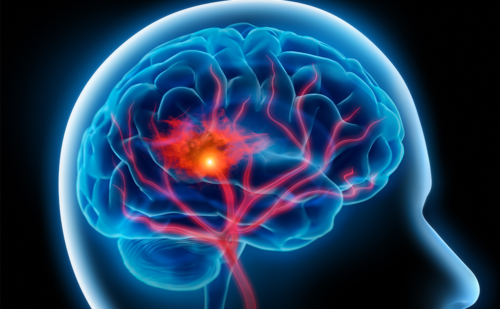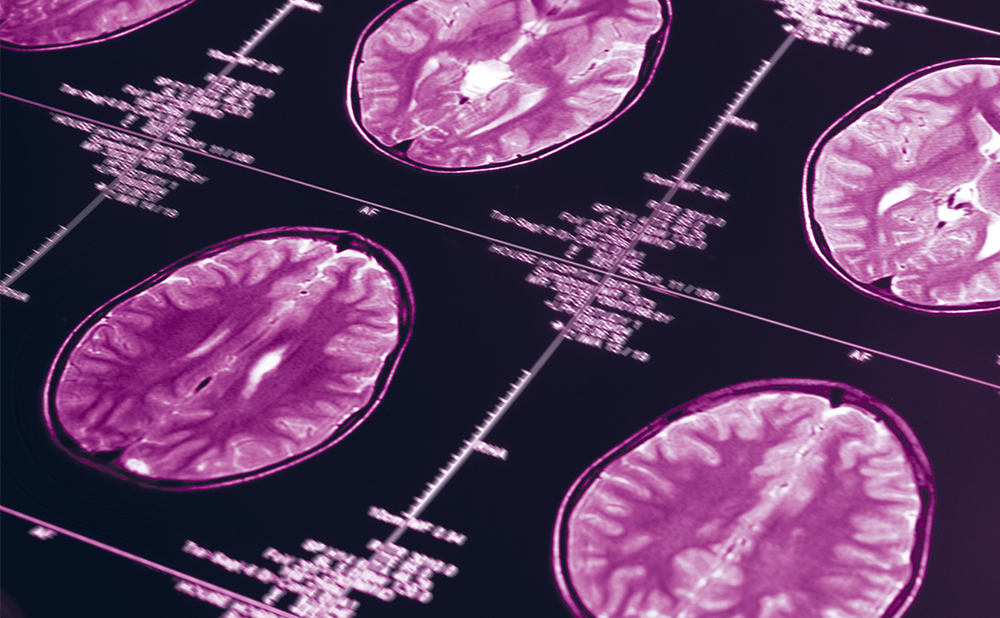The increased incidence of Alzheimer’s disease (AD) and related dementias in European and other northern countries is creating a real challenge for primary care providers. Providing care for AD patients is a long-term commitment on the part of the primary care physician (PCP). The PCP plays a key role in the management of older adults with AD as both care provider and care planner.1,2 Indeed, such patients have complex medicopsychosocial needs and deserve specific management requiring a global approach. The role of PCPs is consolidated by the confidence of family care-givers in their skills.3 Clinical research also suggests that care-givers appreciate support from PCPs.4 In a recent article, neurodegenerative diseases, and especially AD, were identified as one of the main reasons for home visits in family medicine.5
A recent study has demonstrated that it is very difficult to collect information about the training and education of PCPs in the field of dementia.6 Some studies explore self-reported approaches and barriers in the management of patients with dementia.3,7,8 In primary care surveys exploring the tasks, knowledge and attitude of PCPs in dementia care management, one study has shown that the knowledge of PCPs was good,7 but PCPs often rated their own knowledge as insufficient.3,8,9 Many studies have also stressed that recommendations were not satisfactorily applied by general practitioners,7,10–12 especially with regard to the early recognition of AD.13 Indeed, the number of new cases detected in general practice is below the epidemiological figures based on rates of incidence and prevalence in the general population in Europe. The reasons identified to explain this underdiagnosis are the lack of simple tests,difficulties in disclosing the diagnosis, difficulties in managing behavioural and psychological symptoms of dementia (BPSD) and a lack of time.7,8,14–16
In recent years, numerous guidelines on detecting the early onset of dementia, diagnostic management, disclosure, pharmacological and non-pharmacological treatment and follow-up have been developed. These guidelines are not always specifically addressed to PCPs and often propose collaboration with specialists and community professionals.1,2,17–20 Moreover, one study has underlined the complexity of recommendations for help-seeking in the management of dementia.20
Nevertheless, it seems very important for PCPs to be aware of early detection issues.2 It has notably been demonstrated that a memory complaint expressed to the PCP is a risk factor for AD.21 Therefore, the importance of memory complaints should not be underestimated in clinical practice. Some studies have focused on the need to improve the quality of dementia screening in primary care.22–25
While underdiagnosis of AD is certainly an issue to consider, so is underdisclosure.26,27 In many studies, PCPs felt uncomfortable disclosing the diagnosis to both the patient and the family care-giver.7,28,29 The studies on the attitudes or practice of PCPs concluded that almost half of PCPs are in favour of diagnosis disclosure while the other half are not.30 The absence of disclosure or vague information may be poorly received by the patient and his or her family.31 For some authors, disclosure to patient and family should be carried out by both the specialist and the PCP.
The pharmacological treatment of dementia is also considered by PCPs as one of the major obstacles in the management process. As a matter of fact, some physicians and other health professionals consider that the diagnosis of AD may not be necessary, considering the lack of curative treatments and the stress related to the diagnosis.16,32 In the majority of countries, only specialist physicians (neurologists, psychiatrists, geriatricians and physicians with a qualification in geriatrics) may write the initial prescription.33 Currently, in many European countries the general practitioner can renew or interrupt symptomatic treatment and it is his or her duty to monitor its tolerance and efficacy. The therapeutic objectives should be explained to the patient and his or her care-giver by the PCP,34 who should also explain the benefits expected from the pharmacological treatment.35 The role of the PCP in therapeutic management exceeds the framework of pharmacological treatment. Indeed, with regard to non-pharmacological treatment, the role of the PCP is above all to set up support services and, of course, to ensure follow-up.
First of all, management of a patient’s co-morbid conditions is one of the major roles of the PCP.36 The general objectives of the follow-up plan of AD patients are the detection, prevention and treatment, when possible, of complications (falls, malnutrition, BPSD), based on a global assessment.1,2,37 The care and assistance plan will be truly effective only if the PCP facilitates its application with the aim of detecting, preventing and treating complications as soon as they appear in order to reduce their impact on the patient and his or her relatives.37 The follow-up plan may be tailored to the individual case in conjunction with a specialist evaluation every six months in order to provide the PCP with all the information necessary for follow-up; a frequency of every one to three months depending on the stability of the symptoms, the severity of the disease and co-morbidities is proposed in many European guidelines. The members of the European Alzheimer’s Disease Consortium have put forward propositions concerning patient follow-up based on the French PLASA study, a randomised controlled interventional study of 1,120 patients with AD.38 The PCP must first ensure that the diagnosis has been disclosed and basic education on AD provided. Then, at each visit, the physician needs to evaluate cognitive, functional and nutritional status. It is also essential to evaluate behavioural changes, gait and balance disorder, co-morbid diseases and the tolerance/efficacy of drugs.38,39 Prevention of crisis situations such as admission to an institution and ‘emergency’ hospitalisation is one of the major goals of any follow-up plan. The management of AD patients in crisis situations is a dynamic and time-consuming three-sided relationship between the family care-giver, the demented patient and the family physician.
In the event of BPSD and after initiating non-pharmacological measures – in particular environmental measures – the PCP may be led to prescribe psychotropic treatments. It should be noted that antipsychotic drugs must be reserved for specific situations and used in short courses at a low dose, with frequent reassessment of the risk–benefit ratio.40
Monitoring of the patient’s nutritional status is also an important part of follow-up.41 If the patient has weight loss >2kg over the previous three months, or more than 4% in one year, the PCP should look for a somatic cause and, if none is found, they should advise an enriched diet.42 Weight loss is often accompanied by complications such as sarcopenia and falls, which are associated with a higher risk of institutionalisation and mortality.43,44 In the event of falls, after a physical or iatrogenic cause has been sought, the patient should be encouraged to walk for 30 minutes every day or three times a week, preferably with the care-giver or, if this is not possible, with the help of a physiotherapist.45 The patient’s home should be adapted to make movement and walking easier and to reduce the risk of falls. The physical and emotional health status of the care-giver may also be appraised to prevent care-giver exhaustion.46 The PCP must be able to recognise distress in care-givers and to evaluate their physical state. The scientific literature supports creating a close relationship with care-givers of AD patients.17,47 The PCP needs to estimate the need for home support or respite care (day care centres, temporary stay in a nursing home). PCPs often report a lack of information on support services.48 Moreover, support services are generally underused by PCPs, especially in the early stages of the disease, with large variations between countries, notably in Europe.33 However, many authors have underlined that the PCP should be familiar with support services, in particular the respite facilities available (day care centres, adult care centres, temporary stay in a nursing home, respite care at home) and also home support services (personal assistance, home help supports). Finally, in all cases collaboration with specialist physicians (neurologists, geriatricians or psychiatrists) is needed; furthermore, a recent work has shown that PCPs are seeking a more cohesive form of interdisciplinary dementia care.48
Considering these issues, studies have focused on how to improve the management of AD in primary care practice.49,50 The need for better education and training programmes for PCPs has been demonstrated in both the early diagnosis and management of AD.6,51 Indeed, sufficient knowledge is one of the prerequisites for adequate dementia management. Training programmes have been developed in most European countries, and relevant educational projects now exist for PCPs.6,52 Many of these educational approaches are effective in improving detection rates in dementia.53 Indeed, it is essential to train PCPs because their intervention is complex at all levels: they are expected to detect the early onset of dementia, disclose the diagnosis, co-ordinate home care, follow through treatment issues, provide basic education to the care-giver and stay involved in the care process. PCPs have a duty to keep their professional practices and skills up to date, by various means. They must have optimal initial knowledge about the disease and then undergo continuous training in order to progress their professional skills. Considering the likely future prevalence of AD, PCPs will be increasingly confronted with the problems raised by the disease. Dementia in general and AD in particular will have a large impact on the health and healthcare needs of northern countries. For these reasons, it is essential to clearly define the role of primary care providers and to improve their knowledge about the disease and related guidelines.20
In conclusion, PCPs must follow the general objectives of identifying dementia and allowing early diagnosis, disclosing diagnosis to both the patient and his or her family, preventing and treating, if possible, the complications of AD (falls, malnutrition, BPSD) and implementing a follow-up plan.1,2,37 It is also important for PCPs to develop interactions with specialist physicians and all community professionals who intervene in the management of AD patients. The key role of PCPs is consolidated by the confidence of family care-givers in their skills. Nevertheless, clear and validated guidelines covering all aspects of AD care, from early diagnosis to adequate referrals, should improve the ability of PCPs to support many time- and energy-consuming home care situations. Intervention studies addressing the gaps in the skills of PCPs in dementia management could be helpful in supporting the family care-giver.3 Currently, further work, especially the creation of evidence-based practice guidelines, is needed to establish quality indicators for primary dementia care. ■














